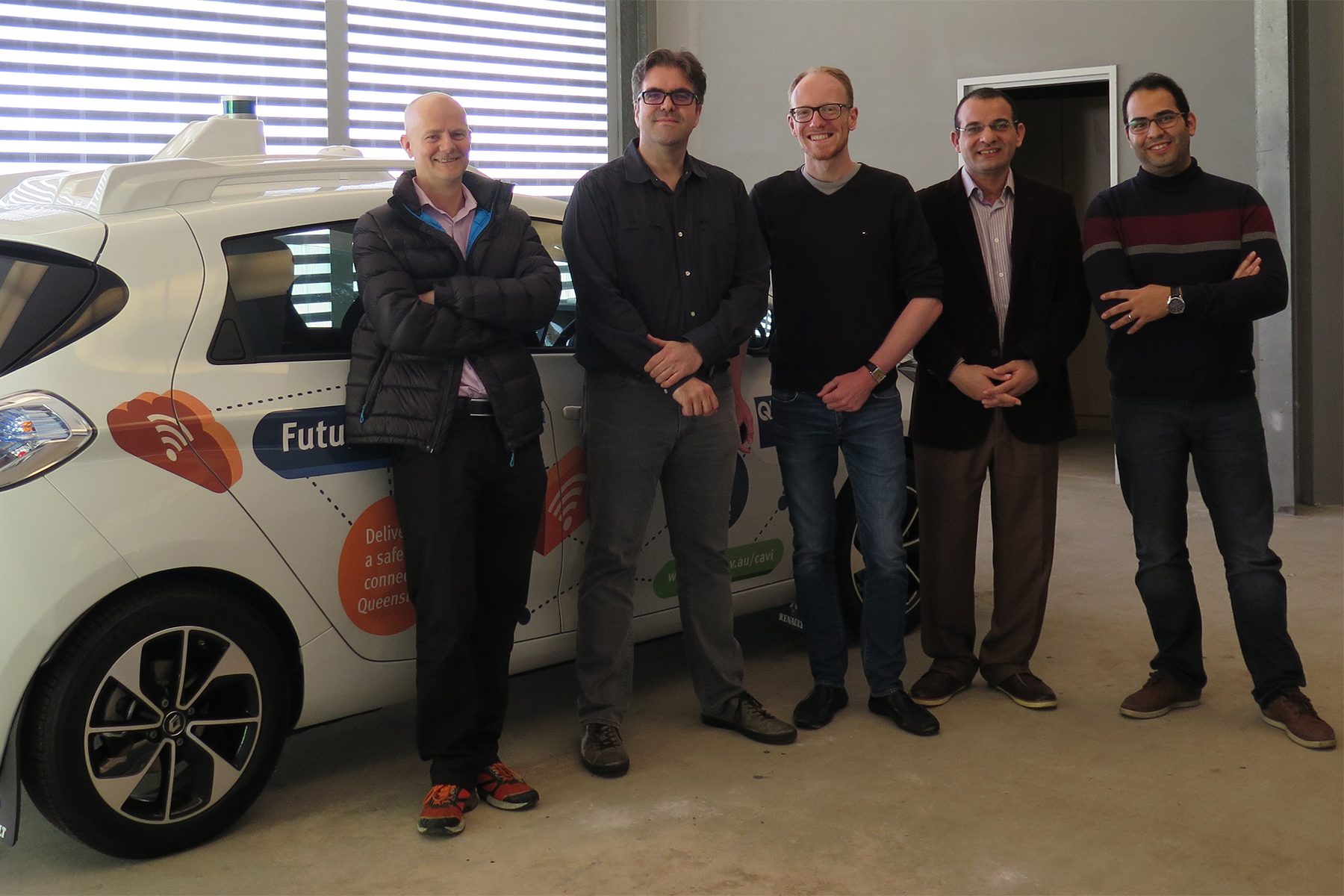QUT researchers are trialling the most advanced cooperative and automated car in Australia and will present a panel discussion this weekend on the big issues around the emergence of automated cars on Queensland roads.
Following the launch this week by the Queensland Department of Transport and Main Roads (TMR) of ZOE2, a level four cooperative and automated vehicle (CAV) research prototype, QUT is hosting the public forum on automated vehicle research as part of QUT's Robotronica on Sunday August 18.
Robotronica is a robotics and technology festival showcasing some of the world's latest advancements, celebrating innovation and offering a glimpse of the possibilities of the future.
Visitors to Robotronica will get up close to the ZOE1 data collection vehicle and the ZOE2 CAV, seeing their array of sensors in action. ZOE1 is testing the road environment to ensure safe deployment of ZOE2 and future automated vehicles.
ZOE2 is part of TMR's Cooperative and Highly Automated Driving (CHAD) Pilot. The car arrived in Brisbane in June and has been undergoing extensive off-road testing and analysis.
TMR is supported in this pilot by the Motor Accident Insurance Commission, iMOVE Cooperative Research Centre (iMOVE CRC) and Queensland University of Technology's Centre for Accident Research and Road Safety - Queensland (CARRS-Q). The vehicle was built by French research consortium VEDECOM, using a standard commercially available Renault ZOE electric vehicle as its base.
It has been granted a permit for testing on pre-defined Queensland roads, and is under the supervision of qualified engineers.
QUT Director of Future Mobility Dr Andy Bond of CARRS-Q said the opportunity to test an advanced automated vehicle such as ZOE2 pushed the debate about the future of cars beyond the theoretical into the practical.
"There is no other passenger vehicle in Australia that, on the one hand, can operate alongside existing traffic on public roads and on the other hand, has the full suite of automated technology that can take it into fully automated mode," Dr Bond said.
"ZOE2 represents a new and exciting major research asset which will enable the design and development of new components for future vehicles. This enables QUT to investigate AV perceptions, safety, and operational requirements for the next generation of vehicles. "
Cooperative automated vehicles will change the transport ecosystem. QUT is in a unique position to provide a multidisciplinary set of insights to understand and predict future safety and societal impacts of this disruptive technology.
"We're leveraging off the depth of safety research that we've been doing for 25 years," Dr Bond said.
"We've got a very strong and enthusiastic team looking at issues such as the regulations under which they operate."

Dr Bond said automated vehicles brought together two fields, the automotive industry, which traditionally could take a generation to roll out a new feature, and the software industry which operates under a more dynamic software innovation model.
"This confluence of dynamic innovation and trusted safety is a challenge for both industries to reconcile," Dr Bond said.
"People have an aversion to thinking they can hand control over to something which is automated and yet we do it all the time – people have automated pacemakers keeping them alive."
Dr Bond said much of the discussion about automated cars split into two camps – automated vehicles as a novelty in today's manual driving universe and the future where automated vehicles would be the most common type of car.
But he said the really challenging point would come somewhere in the middle of this evolutionary change, when roads were populated by a mix of both types of vehicle. By better understanding the impact on safety and transport for all road users, we will be better positioned to optimise how this mix evolves.






